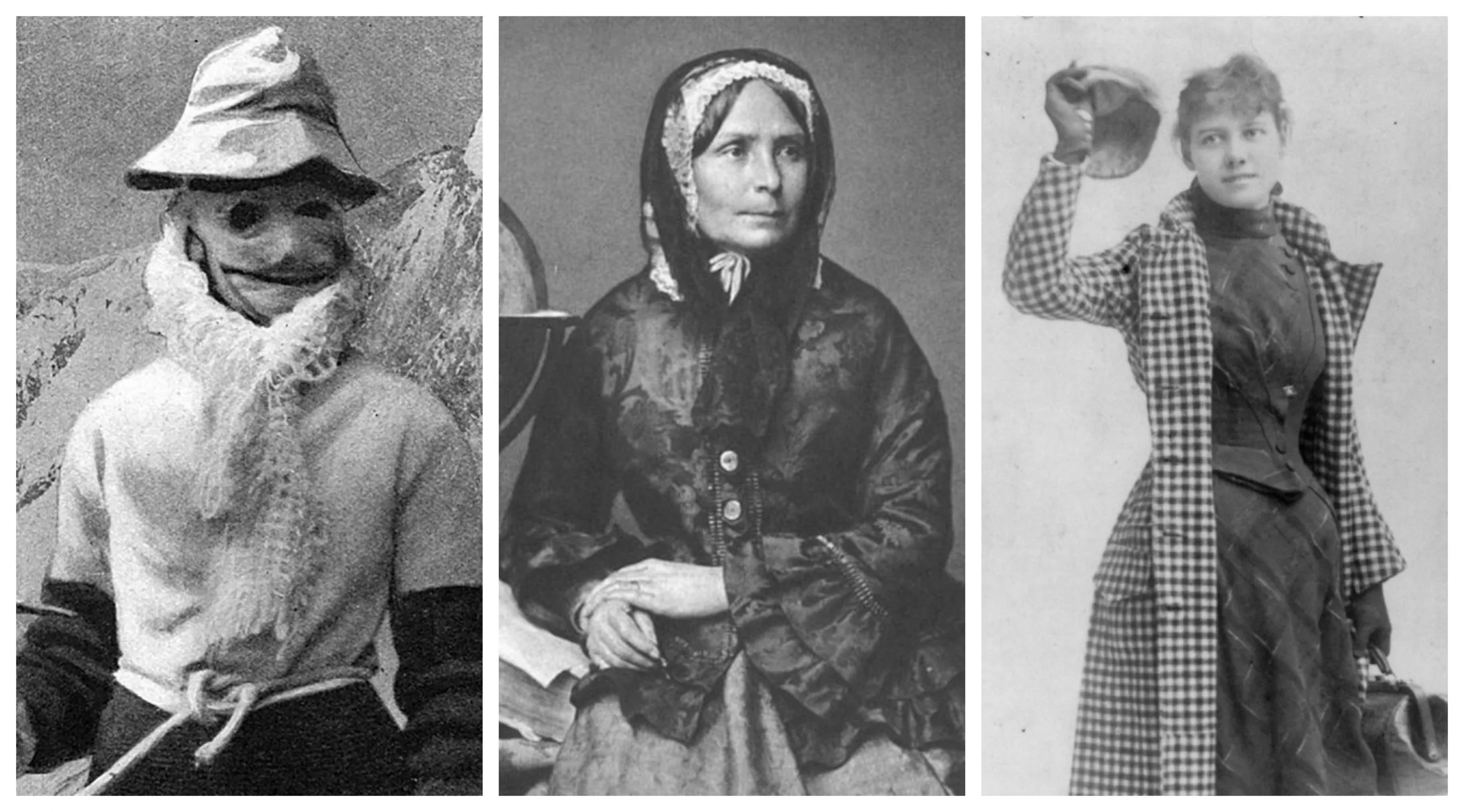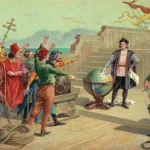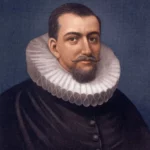Embark on an epic adventure through the annals of history as we explore the lives and legacies of the fearless explorers who shaped the destiny of America. From the legendary Christopher Columbus to the oceanographic pioneer Sylvia Earle, these intrepid souls ventured into the unknown, driven by a thirst for discovery and a desire to chart the vast expanse of the American continent. Their journeys, often fraught with danger and uncertainty, left an indelible mark on the nation’s history, expanding its boundaries, fueling economic growth, and sparking transformative cultural exchanges.
Famous American Explorers: Pioneers of the American Frontier
American explorers, fueled by an unyielding spirit of adventure and a quest to unravel the mysteries of the unknown, embarked on perilous journeys into uncharted territories. These pioneers braved treacherous landscapes, navigating uncharted waters and untamed frontiers to map the vast expanse of the American continent. Their expeditions, driven by a complex tapestry of motivations, played a pivotal role in shaping the nation’s destiny, expanding its boundaries, and leaving an indelible mark on the course of American history.
Diverse Dreams, Lasting Impacts: Unveiling the Motivations
These intrepid individuals, hailing from diverse backgrounds, were driven by a myriad of motivations. Some, like Meriwether Lewis and William Clark, were driven by a profound curiosity to unravel the mysteries of the natural world, eager to expand scientific knowledge and understanding. Their epic journey through the Louisiana Purchase, documented in meticulous detail, provided invaluable insights into the flora, fauna, and indigenous cultures of the American West.
Others, such as those who funded Christopher Columbus’ voyages, were lured by the promise of riches and economic prosperity. They sought new trade routes, dreamed of stumbling upon mountains of gold and shimmering silver, and envisioned exotic spices that could be traded back home for a king’s ransom. Economic ambition, intertwined with the allure of the unknown, fueled many of these early expeditions, shaping the course of colonization and trade.
However, as European powers established a stronger foothold in the New World, the focus of exploration gradually shifted. Political ambitions took center stage, with explorers becoming pawns in a global game of chess, establishing colonies, and vying for control of new territories. The drive for territorial expansion and the desire to establish dominance on the world stage became increasingly intertwined with the pursuit of knowledge and wealth.
Navigating with Innovation and Open Minds: Technology and Cultural Exchange
To navigate the unfamiliar waters and uncharted territories, these explorers relied on the cutting-edge technology of their time. Compasses, astrolabes, and innovative shipbuilding techniques guided their way, enabling them to chart the stars, traverse vast distances, and map previously unknown regions. The constant quest for new tools and methods to enhance their expeditions showcased their ingenuity and adaptability in the face of formidable challenges.
However, these journeys were not solely defined by technological advancements but also shaped by profound cultural encounters. As explorers ventured into new lands, they encountered diverse indigenous populations, each with unique customs, beliefs, and ways of life. These interactions, though often marked by misunderstandings and conflicts, challenged preconceived notions, broadened horizons, and contributed to a more nuanced understanding of the world.
The Lewis and Clark Expedition, for example, benefited immensely from the guidance and cultural knowledge of Sacagawea, a Shoshone woman who served as their interpreter and guide. Her presence not only facilitated communication but also provided invaluable insights into the customs and traditions of the Native American tribes they encountered.
A Legacy of Inspiration and Discovery: Shaping the American Identity
The legacy of these famous American explorers continues to resonate today, inspiring adventurers, historians, and dreamers alike. Their stories of courage, perseverance, and the pursuit of knowledge stand as testaments to the boundless capacity of the human spirit to explore, to question, and to seek understanding beyond the familiar.
From the daring expeditions of Lewis and Clark, which opened up the American West, to the groundbreaking oceanographic research of Sylvia Earle, which has revolutionized our understanding of marine ecosystems, these explorers have left an indelible mark on our collective consciousness. Their contributions to science, geography, and cultural understanding continue to shape our world today.
If you are interested in knowing about brave and famous explorations done by Americans, then this article is the perfect choice for you!
What Drove These Explorers to Explore America? Unraveling the Motivations
The allure of the unknown, the promise of untold riches, and the desire to expand the boundaries of human knowledge – these are just a few of the driving forces that propelled these intrepid individuals to embark on their perilous journeys. Let’s delve deeper into the multifaceted motivations that fueled these epic adventures:
Curiosity and the Thirst for Knowledge:
Imagine a world without Google Maps, a time when stories of distant lands were mere whispers in the wind, fueling imaginations and igniting a burning desire to uncover the truth. For many explorers, the pursuit of knowledge was paramount. They yearned to fill in the blank spaces on maps, to document new species of plants and animals, and to unravel the mysteries of uncharted territories. The allure of the unknown, the desire to chart new lands, and the quest to expand the frontiers of human understanding served as powerful motivators.
Economic Ambition and the Quest for Riches:
The age of exploration was also an age of commerce. European powers, eager to establish new trade routes and tap into the wealth of the New World, funded expeditions with the promise of lucrative returns. Explorers were often driven by the lure of gold, silver, spices, and other valuable commodities that could be brought back to Europe for enormous profits. The pursuit of economic gain, intertwined with the spirit of adventure, played a pivotal role in shaping the course of exploration and colonization.
Political Expansion and the Quest for Power:
As European powers vied for dominance on the world stage, exploration became increasingly intertwined with political ambition. Establishing a presence in the New World, claiming territories, and controlling vital trade routes became key objectives. Explorers, often acting as agents of their respective crowns, played a crucial role in expanding empires, establishing colonies, and shaping the geopolitical landscape of the era.
Religious Fervor and the Desire to Spread Faith:
For some explorers, the desire to spread their religious beliefs was a primary motivator. They saw the New World as fertile ground for conversion, seeking to bring Christianity to indigenous populations. These missions, often intertwined with the pursuit of wealth and power, had a profound impact on the religious landscape of the Americas, leading to both the spread of Christianity and the suppression of indigenous belief systems.
Scientific Curiosity and the Dawn of New Discoveries:
As exploration progressed, scientific curiosity began to play an increasingly important role. Naturalists, botanists, and other scientists accompanied expeditions, eager to document new species of plants and animals, study unexplored ecosystems, and expand the boundaries of scientific knowledge. These expeditions, driven by a quest to understand the natural world, led to groundbreaking discoveries and laid the foundation for future scientific advancements.
Evolution of Motivations: Shifting Sands of Time:
It’s essential to recognize that these motivations were not mutually exclusive nor static. They often intertwined and evolved over time. Early voyages, driven by a blend of curiosity and economic ambition, paved the way for later expeditions focused on territorial expansion, political dominance, and scientific inquiry. The motivations for exploration were as diverse and dynamic as the explorers themselves, shaping the course of history and leaving a lasting legacy on the world.
The Enduring Impact of Famous American Explorers: Shaping a Nation
The impact of these intrepid explorers extends far beyond the initial discoveries and territorial claims. Their expeditions had profound and lasting consequences, shaping the political, economic, social, and cultural landscape of America.
Geographic Expansion and the Transformation of a Continent:
Explorers like Lewis and Clark, through their daring journeys into the American West, opened up vast territories for westward expansion. Their detailed maps and journals provided invaluable information about the terrain, resources, and indigenous cultures of the region, paving the way for settlers, traders, and entrepreneurs.
Cross-Cultural Encounters and the Exchange of Knowledge:
The encounters between American explorers and indigenous populations, though often marked by conflict and misunderstanding, also facilitated a complex exchange of knowledge, ideas, and technologies. Explorers brought back new plants, animals, and cultural practices to Europe, while indigenous communities were exposed to new ways of life, tools, and beliefs. These interactions, though often unequal in power dynamics, had a lasting impact on both sides of the Atlantic.
Economic Growth and the Expansion of Trade:
The discoveries of new lands, resources, and trade routes fueled economic growth and transformed global trade patterns. The search for gold and silver, the establishment of plantations, and the fur trade all contributed to the rise of global commerce, enriching European powers and profoundly impacting the economies of both the Old and New Worlds.
Scientific Advancements and New Understandings:
The expeditions of American explorers, particularly in the 19th and 20th centuries, were often accompanied by scientists eager to study the natural world. These scientific inquiries led to groundbreaking discoveries in fields such as botany, zoology, geology, and oceanography, expanding our understanding of the planet and laying the foundation for future scientific advancements.
Legacy of Inspiration:
The stories of these explorers, with their tales of courage, perseverance, and the pursuit of the unknown, continue to inspire generations. Their journeys remind us of the power of human curiosity, the importance of pushing boundaries, and the enduring allure of exploration and discovery. Their legacies live on in the maps we use, the stories we tell, and the spirit of adventure that continues to drive us to explore the world around us.
Famous American Explorers: Fact vs. Fiction
The stories of famous American explorers, often passed down through generations and woven into the fabric of national identity, are a fascinating blend of historical fact, embellished tales, and enduring myths. Let’s delve into the world of exploration, separating the reality from the romanticized narratives, to gain a more nuanced understanding of these iconic figures.
Unraveling the Myths: Separating Fact from Fiction
Christopher Columbus and the “Discovery” of America:
Columbus’s voyages to the Americas, while undeniably significant, are often framed around the narrative of “discovery.” However, it’s crucial to remember that indigenous communities had inhabited the Americas for centuries prior to his arrival. Columbus’s voyages, while opening the door to European colonization, were not a discovery in the true sense of the word. The narrative of “discovery” often overshadows the rich history and vibrant cultures that existed in the Americas long before European contact.
Leif Erikson: A Viking Voyager Overshadowed by History:
Leif Erikson, a Norse explorer, is believed to have reached North America around 1000 AD, nearly 500 years before Columbus. Archaeological evidence suggests a Viking presence in present-day Canada, challenging the traditional Eurocentric narrative of American exploration. Erikson’s voyages, though often overshadowed in popular accounts, are a testament to the spirit of exploration that transcended cultural boundaries.
Davy Crockett and Daniel Boone: Frontiersmen of Legend and Reality:
The stories of frontiersmen like Davy Crockett and Daniel Boone are deeply ingrained in American folklore. Their bravery, marksmanship, and wilderness skills have been celebrated in countless tales and legends. While their exploits were undoubtedly impressive, it’s important to remember that their stories have been embellished over time, blending historical fact with exaggeration and myth-making. The larger-than-life personas often associated with these figures reflect the romanticized image of the American frontier, blurring the lines between reality and legend.
| Explorer | Fact | Fiction |
|---|---|---|
| Christopher Columbus | Made landfall in the Americas, initiating European colonization. | “Discovered” America, overlooking the existing indigenous populations. |
| Leif Erikson | Likely the first European to reach North America, establishing a brief Viking presence. | Often overshadowed in historical accounts, with his voyages receiving less recognition. |
| Davy Crockett | Skilled frontiersman, politician, and folk hero. | Larger-than-life tales of strength, skill, and invincibility often overshadow his historical contributions. |
| Daniel Boone | Trailblazer and explorer who helped settle Kentucky, playing a significant role in westward expansion. | Romanticized image of the rugged individualist, often exaggerated in popular narratives. |
The Human Side of Exploration: Trials, Triumphs, and the Complexity of Legacy
It’s essential to remember that these explorers, often celebrated as heroes or condemned as villains, were complex individuals driven by a mix of ambition, curiosity, faith, and the desire for personal gain. Their journeys, fraught with danger, hardship, and uncertainty, tested the limits of human endurance and resilience.
Their successes, such as mapping new territories, establishing trade routes, and expanding scientific knowledge, were often accompanied by failures, setbacks, and unintended consequences. Their interactions with indigenous populations, though sometimes marked by cooperation and cultural exchange, also led to conflicts, displacement, and the spread of diseases that decimated native communities.
The legacy of American exploration is a complex tapestry woven from threads of courage, ambition, innovation, conflict, and cultural exchange. It’s a history that continues to shape our world today, prompting us to grapple with the enduring impacts of colonization, the importance of cultural understanding, and the evolving relationship between humanity and the natural world.
- Unlock Water’s Symbolism: A Cross-Cultural Exploration - April 20, 2025
- Identify Black and White Snakes: Venomous or Harmless? - April 20, 2025
- Unlocking Potential: Origins High School’s NYC Story - April 20, 2025
















Comments are closed.